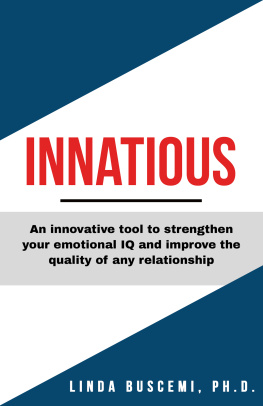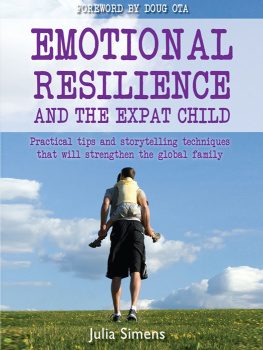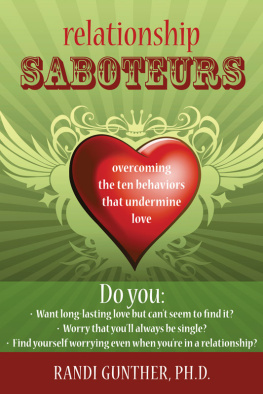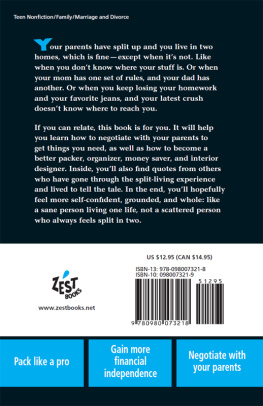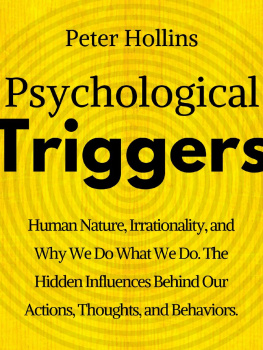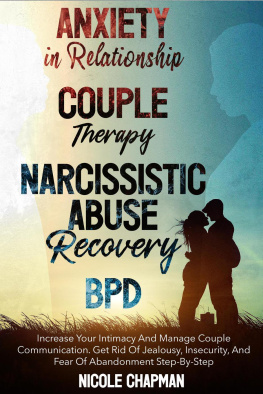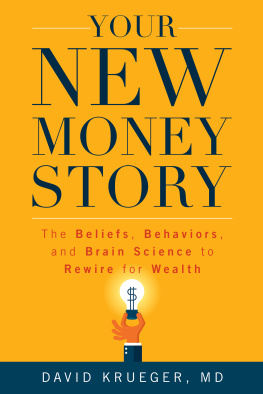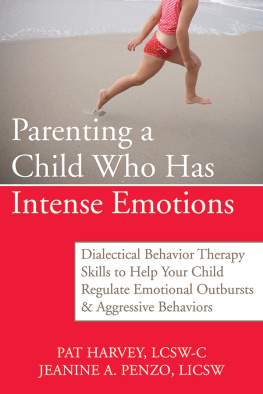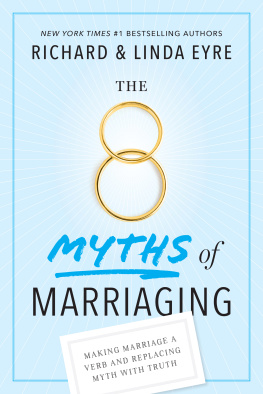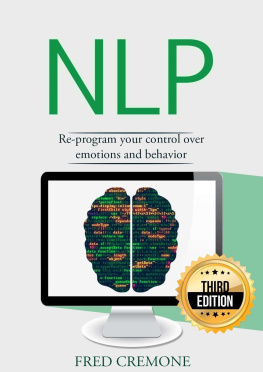Copyright 2020 by Linda Buscemi.
All rights reserved. This book or any portion thereof may not be reproduced or used in any manner whatsoever without the express written permission of the publisher except for the use of brief quotations in a book review. For permission requests, write to the publisher at the address below.
The author of this book does not dispense medical advice or prescribe the use of any technique as a form of treatment for physical, emotional, or medical problems without the advice of a physician, either directly or indirectly. The intent of the author is only to offer information of a general nature to help you in your quest for emotional well-being. In the event you use any of the information in this book for yourself, the author and the publisher assume no responsibility for your actions.
Note that some names and personal details in the stories within this book have been changed to protect the privacy of those involved.
ISBN (softcover): 978-1-7353707-0-5
ISBN (MOBI): 978-1-7353707-1-2
ISBN (EPUB): 978-1-7353707-2-9
Front cover design by Melanie Votaw
Interior book design by Eric Myhr
Published by ProjectYou by Doc B LLC
3104 E. Camelback Rd. #520
Phoenix, Arizona, U.S.A. 85016
First printing edition 2020.
For my spouse, Scarlett Spring. Her constant encouragement, support, and undying love through this entire process have been vital.
Introduction
A re human beings inherently self-centered? I hold the foundational belief that we are, but bear with me as I explain further. As you will see, this belief includes no judgments.
Through the years, my practice has focused on helping people gain greater self-awareness, leading them to a more in-depth understanding of the true motivations for their actions. As we explored the origin of these motivations, I found that if someone felt they were accused of self-centeredness, they immediately became defensive. Thinking of this as a negative attribute equal to selfishness, they set about trying to convince me that they actually werent self-centered at all. So, I began to say the following to lower their defenses: All people are self-centered. The only difference between a four-year-old and a 40-year-old is that the 40-year-old actually knows the world doesnt revolve around them. They know that to get along with others, they have to take the feelings of other people into consideration. Other than that, we all want what we want. I watched my clients shoulders drop, one after another, with a great sense of relief.
Self-centeredness doesnt negate caring or empathy for others, but since we can only exist in our own skin, we default to viewing anothers experience through the filter of our own experience. Therefore, we can put ourselves in someone elses shoes and feel deeply for them, but we will still be connected to our own feelings and experience. We will still be centered within the self. This is not a negative thing to be lamented. It simply is. In other words, its natural to want to gratify ourselves, even as we care for others.
I found that when my clients reached this level of self-awareness and understanding, their work with me and their therapy reaped the greatest reward. This insight stimulated the most significant changes in each person.
Believing I was on to something, I continued to explore how to better explain the foundational insight that we, as humans, are instinctively driven to meet our own needs, even as we love and care for others. I set out to create a new word without the stigma of the word self-centered. I wanted a word that better defines the dynamic Id observed in my practice, as the definition of self-centered didnt fit what I was trying to express. But such a word doesnt exist, so I created one myself. Thats how the term Innatious was born.
Innatious is defined as an innate, instinctual desire to please ourselves even in the process of serving others; the premise that our actions, reactions, and behaviors are an innate, often subconscious, and even unconscious desire to fulfill and gratify our inner needs. In simple terms, Innatious is the ability to emotionally identify our needs so that we understand what really drives our actions, beliefs, and emotions.
Its important to note, however, that Innatious is not synonymous with selfishness. Understanding your Innatious intent simply gives you better insight into why you do or feel the way you do.
Is Innatious the same as intention? No. Having an intention, by definition, is conceived, planned, and purposeful. Thus, it is intended. Its a direct aim or plan toward something. Innatious intentions, on the other hand, are subconscious or unconscious intentions, which means we arent consciously aware of them until we make the effort to bring them into consciousness. Because theyre outside of our awareness, they can cause us to become stuck in our communications and relationships with others. Becoming aware of our subconscious or unconscious Innatious intent or Innatiousness gets to the root of the reasons for our actions so that we can evaluate them and make changes to improve our relationships and our life.
Not realizing our Innatiousness leads to an inept attempt to communicate our needs, as well as recognize the needs of others. And, of course, authentic communication is the key to any healthy relationship.
INNATIOUS IN EVERYDAY LIFE
We think of charitable gifts and random acts of kindness as selfless and virtuous actions. I contend that while they are indeed virtuous, they arent selfless. The result may appear selfless, but, as I said, a key reason why were giving to charities and performing these virtuous acts is because they give us pleasure and cause us to feel good about ourselves.
Its the feelings of joy and pleasure from charitable giving that provide the Innatious portion of this virtuous act. Giving to others makes us feel good, and since thats the only feeling we can truly experience from the action, its our Innatious intent. Again, Innatious is not a selfish act. It simply allows us to peel back the layers covering what drives us and recognize that gratifying ourselves also drives our selfless behaviors. Theres absolutely nothing wrong with the fact that virtuous behaviors are not 100% selfless. I contend that complete selflessness isnt possible, and theres no reason to wish it were.
Another example of Innatious intent in giving to a charity might be the opportunity to clean out our closet and get rid of things. We had a choice to throw the items in the garbage, give them to friends, sell them in a yard sale, or donate them. But donating them fulfills a positive feeling that the other options do not, and that positive feeling is the Innatious intent.
Of course, Innatiousness can also cause us to do things we later regret. Heres an example: Roberta walks into her bosss office to discuss the results of a project shes working on for her company. During the meeting, her boss mistakenly credits her with an aspect of the project that Roberta had nothing to do with. In fact, it was Robertas friend, Marie, who should receive the accolades. Even though Roberta knows she should correct her bosss mistake, she stays silent and takes the credit. Afterwards, shes wracked with guilt.

